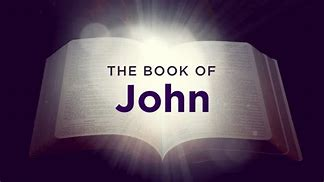Jesus Raises Lazarus - {Interlinear <Greek>}
11:38 - Then {οὖν<oun>} Jesus, {Ἰησοῦς<Iēsous>} deeply {ἐν ἑαυτῷ <en heautou>} moved {ἐμβριμώμενος<embrimaomai>} again, {πάλιν<palin>} came {ἔρχεται <erchomai>} to {εἰς<eis>} the {τὸ<ho>} tomb. {μνημεῖον·<mnēmeion>} It → was {ἦν<eimi>} • {δὲ<de>} a → cave, {σπήλαιον,<spēlaion>} and {καὶ<kai>} a → stone {λίθος<lithos>} lay {ἐπέκειτο<epikeimai>} against {ἐπ᾽<epi>} it. {αὐτῷ.<autos>}
11:39 - Jesus {ὁ Ἰησοῦς·<ho Iēsous>} said, {λέγει<legō>} “Take away {ἄρατε<airō>} the {τὸν<ho>} stone.” {λίθον.<lithos>} Martha, {Μάρθα·<Martha>} the {ἡ<ho>} sister {ἀδελφὴ<adelphē>} of → the {τοῦ<ho>} dead {τετελευτηκότος<teleutaō>} man, ← said {λέγει<legō>} to → him, {αὐτῷ<autos>} “Lord, {κύριε,<kyrios>} by this time {ἤδη<ēdē>} there → will → be → an → odor, {ὄζει·<ozō>} for {γάρ<gar>} he → has → been {ἐστιν.<eimi>} dead • four {τεταρταῖος<tetartaios>} days.” ←
11:40 - Jesus {ὁ Ἰησοῦς·<ho Iēsous>} said {λέγει<legō>} to → her, {αὐτῇ <autos>} “Did → I → not {οὐκ<ou>} tell {εἶπόν<legō>} you {σοι<sy>} that {ὅτι<hoti>} if {ἐὰν <ean>} you → believed {πιστεύσῃς<pisteuō>} you → would → see {ὄψῃ<horaō>} the {τὴν<ho>} glory {δόξαν<doxa>} of → God?” {τοῦ θεοῦ;<ho theos>}
11:41 - So {οὖν<oun>} they took away {ἦραν<airō>} the {τὸν<ho>} stone. {λίθον.<lithos>} And {δὲ<de>} Jesus {ὁ Ἰησοῦς<ho Iēsous>} lifted {ἦρεν<airō>} up {ἄνω <anō>} his • eyes {τοὺς ὀφθαλμοὺς<ho ophthalmos>} and {καὶ<kai>} said, {εἶπεν· <legō>} “Father, {πάτερ, <patēr>} I → thank {εὐχαριστῶ<eucharisteō>} you {σοι<sy>} that {ὅτι<hoti>} you → have → heard {ἤκουσάς<akouō>} me. {μου.<egō>}
11:42 - I {ἐγὼ<egō>} • {δὲ<de>} knew {ᾔδειν<oida>} that {ὅτι<hoti>} you → always {πάντοτέ<pantote>} hear {ἀκούεις·<akouō>} me, {μου<egō>} but {ἀλλὰ<alla>} I → said {εἶπον,<legō>} this • on account of {διὰ<dia>} the {τὸν<ho>} people {ὄχλον <ochlos>} standing around, {τὸν περιεστῶτα<ho periistēmi>} that {ἵνα<hina>} they → may → believe {πιστεύσωσιν<pisteuō>} that {ὅτι<hoti>} you {σύ<sy>} sent {ἀπέστειλας.<apostellō>} me.” {με<egō>}
11:43 - • {καὶ<kai>} When → he → had → said {εἰπὼν<legō> these {ταῦτα <houtos>} things, ← he → cried {ἐκραύγασεν·<kraugazō>} out ← with → a → loud {μεγάλῃ <megas>} voice, {φωνῇ<phōnē>} “Lazarus, {Λάζαρε,<Lazaros>} come {δεῦρο <deuro>} out.” {ἔξω.<exō>}
11:44 - The man who {ὁ<ho>} had → died {τεθνηκὼς<thnēskō>} came out, {ἐξῆλθεν<exerchomai>} his • hands {τὰς χεῖρας<hocheir>} and {καὶ<kai>} feet {τοὺς πόδας<ho pous>} bound {δεδεμένος<deō>} with → linen → strips, {κειρίαις,<keiria>} and {καὶ<kai>} his {αὐτοῦ<autos>} face {ἡ ὄψις<ho opsis>} wrapped {περιεδέδετο. <perideō>} with → a → cloth. {σουδαρίῳ<soudarion>} Jesus {ὁ Ἰησοῦς·<ho Iēsous>} said {λέγει<legō>} to → them, {αὐτοῖς<autos>} “Unbind {λύσατε<lyō>} him, {αὐτὸν <autos>} and {καὶ<kai>} let {ἄφετε<aphiēmi>} him {αὐτὸν<autos>} go.” {ὑπάγειν.<hypagō>}

The death and resurrection of Lazarus were a precursor of Jesus’ impending death and resurrection. Jesus had already spoken of the day when “all who are in the tombs will hear his voice and come out” (5:28–29). Here we are given a “preview of coming attractions.” The apostle Paul spells out the vital connection between Jesus’ bodily resurrection and ours (1 Cor. 15:12–23). If the dead are not raised, Jesus wasn’t raised, but if Jesus was raised, we too shall be raised. The real loser in view is death itself, and more expressly Satan, who holds the power of death (Heb. 2:14). The resurrection we presently enjoy through our union with Christ (Eph. 2:4–7; Col. 3:1) will one day segue into the resurrection of our bodies.
References:
All contents are reposted from ESV.org.
“Scripture quotations are from The ESV® Bible (The Holy Bible, English Standard Version®), copyright © 2001 by Crossway, a publishing ministry of Good News Publishers. Used by permission.
All rights reserved.”
Comments